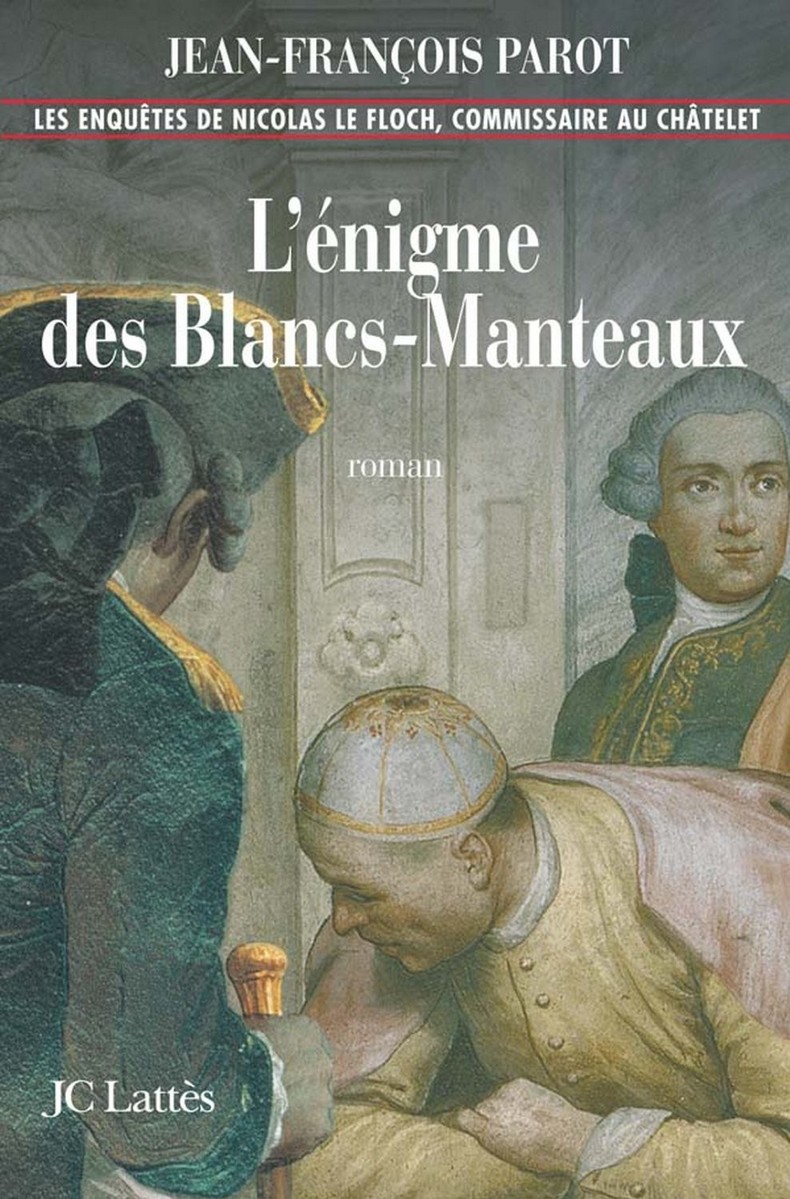Currently Reading






Find me elsewhere:
Reading progress update: I've read 380 out of 380 pages.

(French text and images below.)
Well, that's a wrap. Somewhat against my own expectations, I finished this book in just under a week. As I suspected, we don't actually learn that much more in the final 150 pages, even though the action continued to move at a sprightly pace. There were a few more things I could have done without
(show spoiler)and the author's choice to present the solution in a Golden Age mystery-style "final conclave" didn't really work for me, not least because -- but for the revelations that actually only follow the "final conclave" -- much of what Nicolas says there had at the very least been on the cards since the book's halfway mark or (in part) longer. But to the last, the book's biggest draw for me was the historical detail -- Parot clearly knows what he's writing about, and he is very good at building it into the story's setting and atmosphere. (Unlike in other, similar cases, I didn't even mind the footnotes; by and large, they actually worked better for me than a lengthy "historical note" at the end of the book would have done.) As I said to Tannat in a comment on yesterday's status update, the book feels like Parot is taking the reader on a tour of 18th century Paris (and 18th century Paris society), while at the same time telling a detective story. Overall, that made for a very enjoyable experience.
~~~~~~~~~~~~~~~~~~~~
Eh bien, voilà tout fini! Plus ou moins contre mes propres expectations, j'ai fini ce livre dans un peu moins d'une semaine. Comme j'avais supposé, on n'apprend plus grand'chose dans les 150 pages finales, bien que l'action continue d'avancer à un pas assez gaillard. Il y avait encore quelques élements de plus auquels j'aurais bien voulu renoncer
(show spoiler)et le choix de l'auteur de présenter la grande solution façon "conclave final" d'un roman policier de l'Âge Doré ne m'a pas exactement enchanté, non des moindres parce que -- à part des révélations qui, en fait, suivent au "conclave final" -- beaucoup des faits y mentionnés par Nicolas avaient été au moins possibles depuis la moitié du livre (ou même plus longtemps). Mais jusqu'au moment dernier l'attraction la plus grande du livre, pour moi, était le détail historique -- c'est clair que Parot sait de quoi il parle, et il réussit bien à l'intégrer dans la mise en scène et l'atmosphère du récit. (Au contraire d'autres cas pareils, même les notes individuelles de l'auteur ne m'ont pas dérangé; tout-en-un, je les ai préféré à une longue note historique à la fin du livre.) Comme j'ai dit à Tannat dans un commentaire à mon status update de hier, ce livre me parait comme si Parot avait invité le lecteur à un tour du Paris du 18e siècle (et de la société parisienne du 18e siècle), tout en nous racontant une histoire policière. En somme, cela a fait une expérience bien plaisante.
~~~~~~~~~~~~~~~~~~~~
Final images:

Etienne Jeaurat: Le carnaval des rues de Paris (oil on cloth, 1757, Paris, Musée Carnavalet)
The Carnaval de Paris lasted, in the 17th and 18th centuries, from the day after Epiphany (Twelfth Night) until Ash Wednesday / the beginning of Lent.
 Ebony and ivory Janseist crucifix: Christ is shown hanging with His hands above His head, so as to make His body form an arrow (rather than the "T" form of the traditional crucifix with His arms outstretched at a right angle to His body). The arrow pointing down to the congregation in the Janseist cruxifix signified that Christ died only for the elect; whereas the traditional crucifix featuring outstretched arms indicates that Christ died for the whole world.
Ebony and ivory Janseist crucifix: Christ is shown hanging with His hands above His head, so as to make His body form an arrow (rather than the "T" form of the traditional crucifix with His arms outstretched at a right angle to His body). The arrow pointing down to the congregation in the Janseist cruxifix signified that Christ died only for the elect; whereas the traditional crucifix featuring outstretched arms indicates that Christ died for the whole world.



François Boucher: The Crocodile Hunt and The Leopard Hunt (both 1736), Charles Parrosel: The Hunt of the Wild Boar (1738), and Charles André van Loo: The Bear Hunt (1739), some of Louis XV's "chasses exotiques", then at Versailles -- all now at the Musée de Picardie in Amiens. (Right-click on an image to see a larger version.)


An 18th century map of the faubourg Saint-Marcel (or Saint-Marceau) -- in the 17th and 18th centuries, an extremely poor and downtrodden working class area -- and its location on a map of the modern city (it was outside the city walls in the 18th century). Rousseau wrote in his Confessions:
"En entrant [à Paris] par le faubourg Saint-Marceau je ne vis que de petites rues sales et puantes, de vilaines maisons noires, l’air de malpropreté, de la pauvreté, des mendiants, des charretiers, des ravaudeuses, des crieuses de tisane et de vieux chapeaux. Tout cela me frappa d’abord à un tel point que tout ce que j’ai vu depuis à Paris de magnificence réelle n’a pu détruire cette première impression, et qu’il m’en est resté toujours un secret dégoût pour l’habitation de cette capitale."


Guérande (Nicolas's home town) and its location on a satelite map.
~~~~~~~~~~~~~~~~~~~~
Previous status updates:
Reading progress update: I've read 221 out of 380 pages.

(French text, maps and images below. / Texte français, cartes et images en bas.)
Well, consider me well and truly hooked at this point. There are a few mighty convenient and improbable conincidences --
(show spoiler)-- surely you could have done better than that M. Parot? (I also could seriously have done without Nicolas's -- and the author's -- patronizing attitude towards Awa and her "decapitated rooster" fortune telling stunt. And towards Catherine on that same occasion, for that matter.) But at least we didn't also get the "[shocking things happening to the hero during a] dark and stormy night" cliché on the one occasion when the temptation to use it must have been huge, and I confess that both the action and the wealth of historical detail have rather drawn me in. And it certainly helps to now also know why de Sartine felt he had to select an investigator from outside the ranks of the established police force (even if neither that nor Nicolas's quick understanding and intelligence completely accounts for quite such a young, inexperience choice). By and large, though, I am really enjoying this book, and I am looking forward every day to the time I've set aside at night (and / or in the morning) for this buddy read.
That being said, even before reaching the book's halfway point -- what with the things that Nicolas had learned at the Dauphin couronné and from Antoinette, and the subsequent discoveries at Vaugirard -- it seemed to me that the mystery was pretty much solved,
(show spoiler)and I think so even more now that I'm slightly past the halfway point. Can it really take another 150+ pages to unveil the rest of what we've yet to learn? The Golden Age mystery writers published entire novels of not much more than that length ...
Final side note for now: I've learned a new verb -- "bastiller" (or "embastiller"). I was aware of the Bastille, of course, whose name, however, my mom's battered Petit Larousse informs me, derives from the erstwhile "bastir" ("bâtir" in modern French) -- so the name actually just denotes that it's a building -- whereas from the context it's clear that "(em)bastiller" means "to imprison". So the Bastille, much more than even Le Châtelet and the Conciergerie, was synonymous with "prison", to the point that it, in turn, gave rise to the use of a corresponding verb. Which then again, of course, only goes to underline why it played such a symbolic role in the French Revolution ...
~~~~~~~~~~~~~~~~~
Eh bien, on peut me considérér entièrement captivée de l'action du livre à ce moment. Il y eu quelques coïncidences assez bien convenientes et improbables,
(show spoiler)-- sûrement, vous auriez sait faire mieux que ça, M. Parot? (J'aurais bien voulu renoncer aussi à l'attitude paternalisante de Nicolas -- et de l'auteur -- vis-à-vis Awa et son coup de prophésie au coq décapité. Et, en ailleurs, vis-à-vis Catherine à la même occasion.) Mais du moins on nous épargne le cliché "[des chocs souffert par le héros durant une] nuit sinistre et orageuse" au moment où la tentation de l'user doit avoir été la pire, et il me faut admettre que l'action autant que la richesse du détail historique m'ont bien sucée dans le livre. Et bien sûr ce procès a été facilité aussi par le fait que maintenant nous savons pourquoi de Sartine le pensait indispensable de choisir un investigateur du dehors la police établie (même si ni ceci ni la compréhension rapide et l'intelligence de Nicolas expliquent entierement le choix d'un homme tellement jeune et inexpériencé). Tout-en-un, pourtant, le livre me fait grand plaisir, et je me réjouie chaque jour au temps que j'ai réservé pour ce buddy read à la nuit (et / ou au matin).
Tout ceci étant dit, même avant d'avoir achevé la moitié du livre -- en vue de ce que Nicolas avait appris au Dauphin couronné et d'Antoinette, et ses découvertes suivantes à Vaugirard -- il me paraissait que le mystère était plus ou moins résolu,
(show spoiler)et je pense le même d'autant plus maintenant que j'aie lu un peu plus qu'à demi du livre. Est-ce que ça prendra vraiment encore une 150e de pages de nous réveiller ce qui nous reste à découvrir? Les auteurs des romans policiers de l'Âge Doré ont publié des romans entiers de pas trop plus que ce calibre ...
Commentaire marginal final pour le moment: J'ai appris un verbe nouveau -- "bastiller" (ou "embastiller"). Je connaissais La Bastille, naturellement, le nom de laquelle pourtant, le Petit Larousse battu de ma mère m'enseigne, descend de l'ancien "bastir" ("bâtir" en français moderne) -- donc son nom seulement dénote, en effet, qu'il s'agit d'un bâtiment -- pendant que du contexte c'est clair que "(em)bastiller" signifie "emprisonner". Donc c'étail La Bastille, beaucoup plus que même Le Châtelet et la Conciergerie, qui était synonyme de "prison", au point d'engendre, en revanche, un verbe correspondant. Tout ce qui, bien sûr, de son tour seulement va à souligner son rôle symbolique dans la Révolution française ...
~~~~~~~~~~~~~~~~~

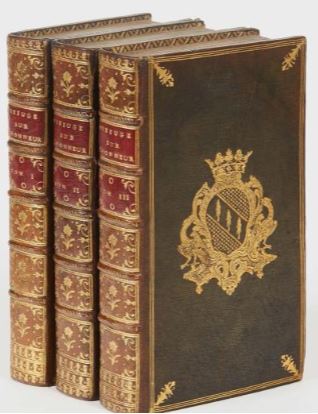
One of Parot's historical notes contains a "by the way" reminder that Nicolas's boss, Antoine de Sartine, was a historical person; he really was the Paris Chief of Police (and, for all practical purposes, the city's true administrator) during the time in which this book is set. He was reputed as a scrupulously fair and forward-thinking magistrate and a proponent of law and order, who however also didn't shy away from locking people up or taking other measures on the basis of "lettres de cachet" (unappealable extraordinary orders signed by the King or by himself), and who used a wide network of spies, both abroad and at home. His reputation preceded him to such an extent that his help and advice was frequently also sought by foreign governments and police forces. (According to Wikipedia, "once, a minister of Maria Theresa wrote to Sartine asking him to arrest a famous Austrian thief who was thought to be hiding in Paris. Sartine replied to the minister that the thief was actually in Vienna, and gave the minister the street address where the thief was hiding, as well as a description of the thief's disguise.")
At about the halfway point of our novel, Nicolas overhears a conversation between de Sartine and another official (whose identity remains undisclosed), which -- while chiefly about the disastrous French losses during the Seven Years' War and the role of Mme. de Pompadour -- also foreshadows de Sartine's later role as Secretary of State for the Navy and architect of the new French naval forces which, in decades to come, would prove such a formidable adversary to those of Great Britain.
The set of books above right shows de Sartine's coat of arms, with the representation of three sardines in the center (phonetically representing his name).

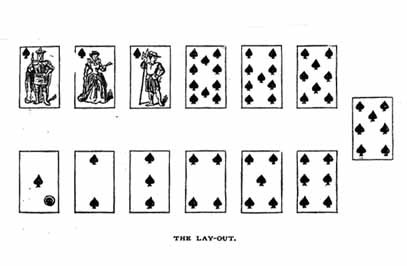
Pharaon (Faro) -- the popular card game mentioned repeatedly in the novel, especially in connection with the goings-on at the Dauphin couronné. (Another repeatedly-mentioned game is Lansquenet.)


Nicolas would probably not recognize the Faubourg Saint-Honoré of today (the location of the Dauphin couronné in the novel) -- it, and especially the rue du Faubourg Honoré, is one of the most exclusive addresses of Paris nowadays, where haute couture, art galleries, embassies, and even the entrance of the Palais de l'Élysee are all sitting right next to each other. -- (For reference, on the map the "P" of "Paris" again represents the Place de l'Hôtel de Ville / formerly Place de Grève; Le Châtelet would have been just beyond the second bridge to the left of there.)


Église Saint-Eustache -- now and then, one of the unmissable sights in the Quartier des Halles -- and its location with reference to the novel's other key locations in the centre of Paris.
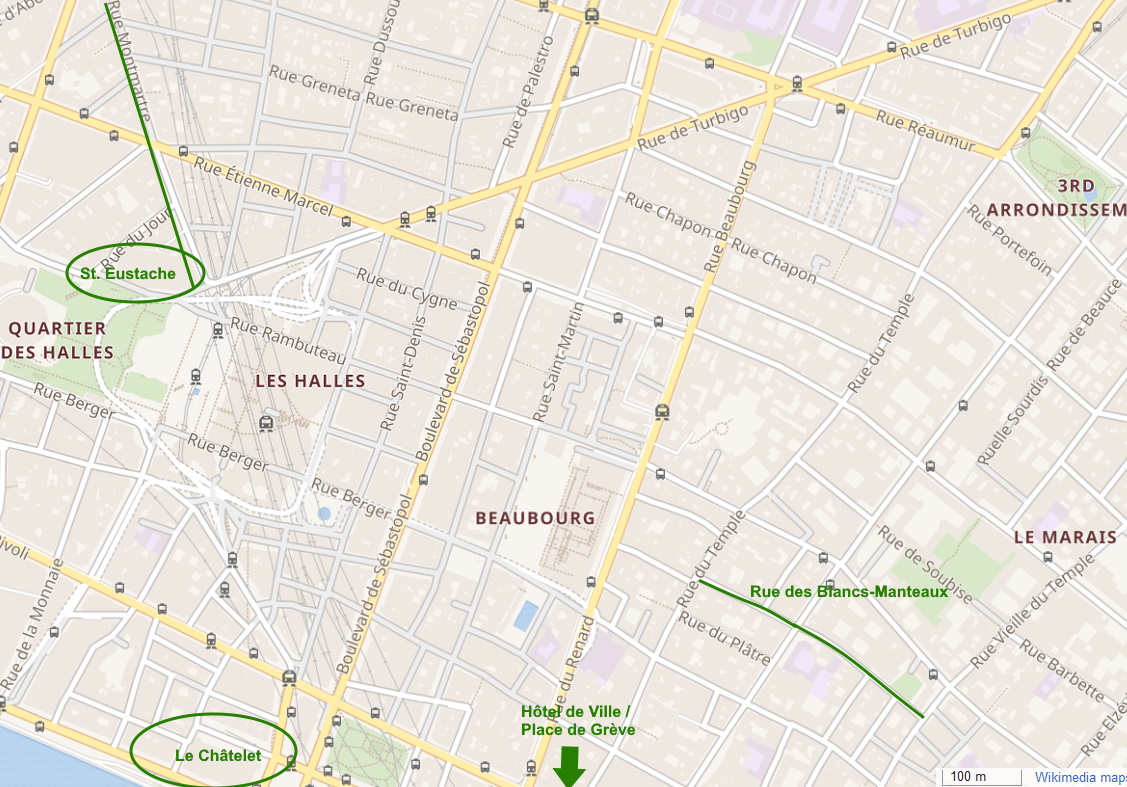
For those who are already at this point in the novel: the rue Montmartre is just north of the église Saint-Eustache and the Quartier des Halles.
BL-opoly, Pandemic Edition -- Fifth Roll




 Landed on "Go" and rolled again (after double checking the rules since I couldn't remember how this works -- though what with the abolition of "roll days", it hardly seems to matter this year).
Landed on "Go" and rolled again (after double checking the rules since I couldn't remember how this works -- though what with the abolition of "roll days", it hardly seems to matter this year).
I was only moderately impressed with book 1 of Helene Tursten's Irene Huss series, but this one is supposed to be better. Let's see!

BL-opoly, Pandemic Edition -- Fourth Roll


 For once my "quick roll before going to bed" is turning out just that -- hooray. Knight's entries in the Medieval Murderers series are not necessarily among my favorites, but it is clear that he knows his stuff, and I might just as well finally catch up with his protagonist Sir John de Wolfe's earlier history.
For once my "quick roll before going to bed" is turning out just that -- hooray. Knight's entries in the Medieval Murderers series are not necessarily among my favorites, but it is clear that he knows his stuff, and I might just as well finally catch up with his protagonist Sir John de Wolfe's earlier history.

 1
1 Verily, a Great Entertainment

"CHORUS:
As our scene to space, so deep and dark,
O’er your imagination we’ll hold sway.
For neither players nor the stage can mark
The great and mighty scene they must portray.
We ask you, let your keen mind’s eye be chief –
Think when we talk of starships, there they be."
"LUKE:
Friends, rebels, starfighters, lend me your ears
Wish not we had a single fighter more,
If we are mark’d to die, we are enough
To make our planets proud. But should we win,
We fewer rebels share the greater fame.
We have all sacrific’d unto this cause.
[...]
For with the Force and bravery we win.
O! Great shall be the triumph of that hour
When Empire haughty, vast and powerful
Is fell’d by simple hands of rebels base,
Is shown the might of our good company!
And citizens in Bespin now abed,
Shall think themselves accurs’d they were not here.
For never shall rebellion see a time
More glori’us then our strong attack today!"
Well, of course Doescher channels the Bard's great speeches, but this is not just parody (of either Shakespeare or Star Wars); it's a cleverly-executed synthesis, transposing the complete screenplay(s) into Shakespearean iambic pentameter -- and somehow managing to remain faithful to both.
I am glad that I opted for the audio version, though: Just as Shakespeare's plays are best experienced in performance (and, well, George Lukas wrote movie scripts, not novels), Doescher's synthesis of the two really comes to life when performed. And I have to give huge kudos to the actors who, while they are clearly having more fun than should be permitted, take the work seriously and give it their full attention, all the way from R2-D2's "beep, squeak, squeeeaak"s (Death of Rats, anyone?) and Han Solo's "hey, I'm just here for the money" attitude to the weightier interactions between Obi-Wan, Luke, Leia, and Darth Vader. (Interestingly, the total length of Doescher's text also falls squarely within the average range of that of a Shakespearean play.) I'm not one of those who can do Star Wars marathons, nor will I typically watch more than one play by the Bard at a time, so I don't see myself bingeing on Doescher's syntheses of the two sources. But I'm glad there is more than one of these -- they just may turn out to be the things to turn to when my life needs a bit of brightening up.
Reading progress update: I've read 112 out of 380 pages.

(English text and images below. Some images in spoiler tags -- trigger warning: substantial gross-out factor.)
Images en bas, quelques-uns marquées "spoiler" -- attention: risque de nausée considérable.
Thanatos: le titre du chapitre dit tout ce qui est nécessaire pour résumir le chapitre no. 5. -- En aillerurs, puisque Nicolas résiste à confirmer l'identité du mort trouvé avec l'aide de la vieille Émilie, probablement il vaut mieux ne pas encore fermer le dossier sur ce sujet-ci. Pourtant, même si ce n'est pas l'un, sûrement ça veut dire que c'est l'autre ... et le propriétaire de ces vêtements, en aurait-il vraiment se débarassé volontiers? Je le doute.
~~~~~~~~~~~~~~~~~~~~
Thanatos: The title of chapter 5 says all that's necessary to sum up its contents. -- Since, incidentally, Nicolas refuses to confirm the identity of the dead person found with old Émilie's help, it's probably a good idea to keep an open mind on that. But surely, if it's not one then it must be the other ... and would the owner of those clothes really have given them up voluntarily? I doubt it.


Place de Grève and Quartier de l'Hôtel de Ville (late 18th century map and depiction from the 1750s, respectively). The Place de Grève was later renamed Place de l'Hôtel de Ville (and still has that name today). -- For reference: Le Châtelet is just to the left of here.

Montfaucon, the actual location where the largely decomposed body was recovered.
(For reference: The Place de Grève / today: Place de l'Hôtel de Ville is in the spot of the "Pa" of the word "Paris"; Le Châtelet was just beyond the second bridge to the left of there.)
(show spoiler)
 2
2 Reading progress update: I've read 94 out of 380 pages.

Expand for images.
(Images et texte français en bas.)
I'm at the end of chapter 4 now, and things are definitely getting interesting.
The first two chapters (not merely chapter 1) were basically exposition, designed to get across that Nicolas is alone in Paris, with nothing to call him back to Brittany and, on the other hand, his job keeping him busy in the capital and providing the key reason for him to remain there. The second chapter (set in Brittany and explaining why he believes he's left it behind for good) was well-written, though, I thought. And leaving aside my usual minor eye-roll at the fact that a young, personable recent ex-trainée is being put in charge of a major investigation (bypassing every single more senior professional), at least Nicolas isn't making a complete fool of himself -- and he is actually willing to listen to his more experienced second in command (whom he has asked to be put at his disposition to begin with), so props for that.
The action has caught up with (and moved on from) the scenes of the "official" prologue, which we now know happened on the night of Nicolas's arrival in Chartres (i.e., on the doorsteps of Paris) on his return from Brittany, and we now also know the identity of one of the corpses deposited on the road to La Villette -- and can at least guess at that of the second one. And if I hadn't decided that just around noon was late enough to be getting up, I might actually have continued reading after all ... (which my cats would surely have preferred, seeing as it would have meant more cozy-up-with-mom-in-bed time for them).
~~~~~~~~~~~~~~~~
Je viens de terminer le 4e chapitre, et les choses définitivement commencent à être intéressantes.
Les deux premiers chapitres (pas seulement le chapitre premier) principalement servent de mise en scène, et sont désignés de transmettrre l'idée de Nicolas seul à Paris, sans rien de le ramener à la Bretagne et, de l'autre côté, avec son métier fournissant son occupation et la raison principale pour lui de rester à la capitale. Pourtant, le deuxième chapitre (qui se déroule en Bretagne et explique pourquoi Nicolas croit l'avoir quitté pour toujours) est bien écrit, je pense. Et à part du fait que je suis, comme toujours, un peu énervée de voir un jeune et sympathique ex-apprenti récent mis en chef d'une investigation importante (en dépassant chacun des professionels avec plus d'expérience), du moins Nicolas ne se rend pas ridicule -- et il est même prêt à écouter aux conseils de son officier adjoint plus éprouvé (lequel Nicolas lui-même a demandé être mis à sa disposition), donc ça me rend content.
L'action a maintenant repris (et continué) des scènes du prologue *officiel" qui, on sait maintenant, s'est déroulé dans la nuit de l'arrivée de Nicolas à Chartres (c-à-d au seuil de Paris) durant son retour de Bretagne; et on connaît aussi maintenant l'identité d'un des cadavres déposés sur la route à La Villette -- et l'on peut du moins deviner celui du deuxième. Et si je n'avais pas déterminé qu'il était déjà assez tard, au midi, de me lever, j'aurais bien pu continuer de lire ... (ce que mes chats sans doute auraient préféré, puisqu'il aurait signifié, pour eux, plus de temps de câliner au lit de maman).
~~~~~~~~~~~~~~~~


Le Châtelet (destroyed at the beginning of the 19th century) and its location


Rue des Blancs-Manteaux today (screenshot from Google Streetview) and its location -- Le Châtelet is in the lower left corner of the map, on the banks of the Seine. The exact location of Lardin's house in the rue des Blancs-Manteaux is unclear, as the two side streets mentioned as reference points do not / no longer exist.

The locations of Vaugirard (in the southwest) and La Villette (in the northeast), both now incorporated into the city of Paris. Châtelet is almost exactly halfway between both (former) villages where the "P" of "Paris" is on the map. (Right-click on the image to see a larger version of the map.)

Map of La Villette (1730)
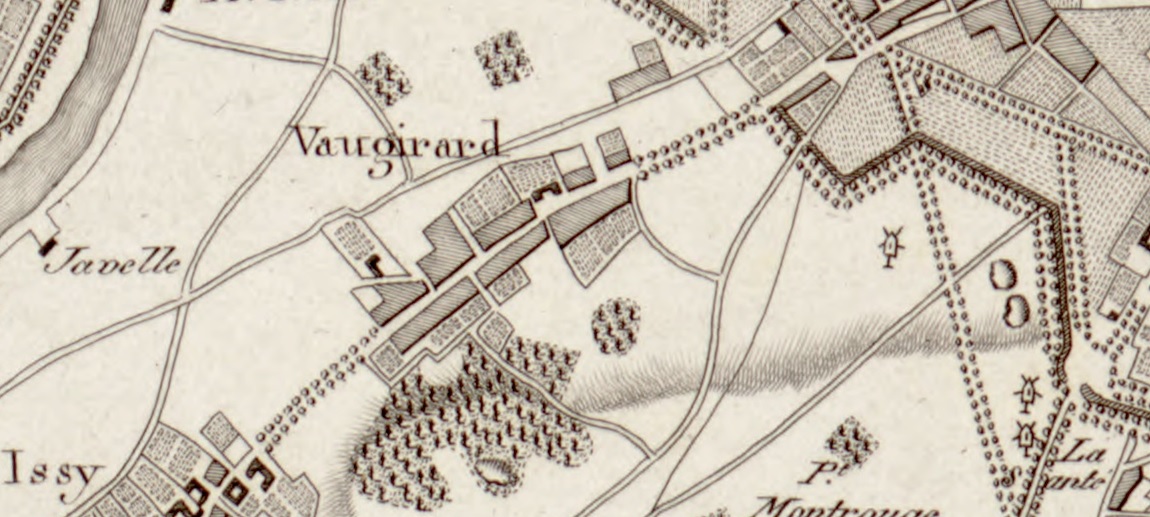
Map of Vaugirard (1805)
(Neither the present-day La Villette nor the present-day [Blvd. de] Vaugirard recall, even in the slightest, the erstwhile villages.)
BL-opoly, Pandemic Edition -- Third Roll


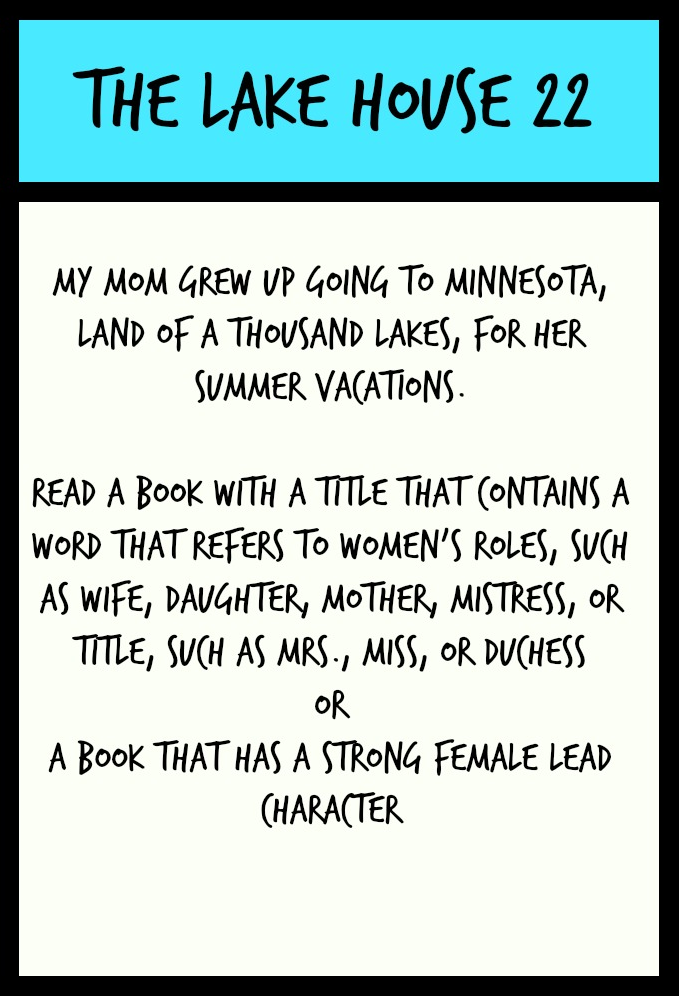

Well, at least I didn't DNF my last 2 reads (but then, at least with the Christie I didn't expect that to happen anyway). Still, since I collared another double, let's play it safe (again) in this round ...

 11
11 Reading progress update: I've read 41 out of 380 pages.

Buddy read en français avec / with Tannat & onnurtilraun.
(English text below.)
Et donc ça commence! Comme d'Artagnan, Maigret, Valjean, Astérix et des nombreux autres protagonistes littéraires français (en tant comme, en ailleurs, La Pucelle, Voltaire, Rousseau, Robespierre, Danton, Marat, Desmoulins, Balzac, Hugo, Flaubert, Maupassant, Sand, Marguerite de Navarre, Napoléon Bonaparte et beaucoup plus d'autres personnages historiques -- pour ne même pas parler du Mouron rouge; héro français fictif qui était après tout, en vérité anglais), notre protagoniste, Nicolas Le Floch, n'est pas né à Paris mais en province: La capitale doit affiner ces gens (eh bien, sauf Astérix, évidemment), mais elle ne les produit pas. Nous sommes donc traités d'une autre entrée à la vie citadine aux yeux grands ouverts, et la rapide transformation d'un jeune homme naïf et peu formé en un professionel bien entraîné et sûr des exigences de son métier. Pourtant, je suis contente que tout cela se déroule au premier chapitre qui en vérité sert de prologue additionel -- en plus du prologue "officiel" qui apparemment doit nous introduire à certains aspects du crime que formera le sujet de l'enquête de Nicolas -- et à la fin duquel Nicolas est déjà de nouveau en route vers sa Bretagne natale ... pour y accomplir quoi? À voir au chapitre prochain, je pense ...
Des deux supérieurs de Nicolas que nous venons de rencontrer au premier chapitre, Sartine me paraît le plus intéressant (et franchement le plus sympathique). Je n'ai pas de confiance en Lardin (ni en ailleurs sa femme).
~~~~~~~~~~~
So it begins! Like d'Artagnan, Maigret, Valjean, Astérix, and numerous other French literary characters (as well as, incidentally, the Maid of Orleans, Voltaire, Rousseau, Robespierre, Danton, Marat, Desmoulins, Balzac, Hugo, Flaubert, Maupassant, Sand, Marguerite de Navarre, Napoléon Bonaparte, and plenty of other historical personages -- not to mention the Scarlet Pimpernel, that fictional French hero who was, in reailty, of course an Englishman), our main character, Nicolas Le Floch, isn't a native Parisian but from the French provinces: The capital may refine these good folks (well, with the exception of Asterix, of course), but it doesn't actually bring them forth. So we're treated to yet another wide-eyed entry into city life, and the rapid transformation of a nave and unschooled young man into a well-trained professional with a firm handle on the demands of his job. I'm glad, though, that this is all taken care of in the very first chapter, which essentially serves as a second prologue -- in addition to the "official" prologue, which apparently introduces us to some of the aspects of the crime that Nicoals will be investigating -- and at the end of which Nicholas is already leaving Paris again for his native Brittany ... to do what? We'll find out in the next chapter, I think ...
Of Nicolas's two bosses that we have met in the first chapter, I think Sartine is the more interesting one (also frankly the one I just like better). I don't much trust Lardin (or his wife, for that matter).
BL-opoly, Pandemic Edition -- Second Roll

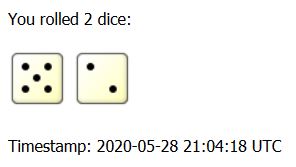


... and of course:
(1) like last year, when rolling shortly before midnight my time, there's no such thing as "a quick roll" but I'm blessed with a double, and
(2) no sooner did I DNF a book set in South America that roll #2-a roll sends me straight to the Patagonia Express. Sigh. I'm putting a Christie on reserve for roll #2-b just in case.

DNF @ just over 40%.

Meh. There's nothing inherently wrong with these stories, but I'm interminably bored -- I just may be over Allende at this point. So, I'm just going to cash in on the 40% I've listened to and roll again.
French Buddy read starting May 30th
Themis-Athena, onnurtilraun, and I are planning to start a buddy read this weekend and we'd like you to invite you to join us. Sorry for the late notice but we were wavering on which book to pick. I definitely mean to spread this read amongst other books so feel free to join in whenever.
We're planning to read L'Enigme des Blancs-Manteaux by Jean-François Parot because we're trying to encourage ourselves to read more French books, but it's been translated into English as The Châtelet Apprentice, so feel free to join us even if French isn't your thing.
Later on, we're thinking about reading L'homme aux cercles bleus by Fred Vargas (English: The Chalk Circle Man) if you can't join in this time.
Hopefully I'll be able to use this for one of my game squares at some point.
Suggested tag: French buddy read
BL-opoly, Pandemic Edition -- First Roll


 Another pandemic month, another game, thanks to Moonlight Reader! I'm glad we're making this a low-key version, and I don't know how often I'll want to roll, but anyway ... here we go. Like last year, I'll have my two little helpers by my side helping me pick my books -- and in keeping with the time, they are properly equipped with face masks. (Being blood siblings and members of the same family, they do not, of course, also have to comply with social distancing between each other.)
Another pandemic month, another game, thanks to Moonlight Reader! I'm glad we're making this a low-key version, and I don't know how often I'll want to roll, but anyway ... here we go. Like last year, I'll have my two little helpers by my side helping me pick my books -- and in keeping with the time, they are properly equipped with face masks. (Being blood siblings and members of the same family, they do not, of course, also have to comply with social distancing between each other.)




Low-Key Booklikes-opoly in June & July
I was looking back over last year's Booklikes-opoly game on the Bingo group and I'm struck at how nostalgic the travel theme feels, from just a year ago. Which made me realize that I'm looking down the barrel of a long, hot summer with nothing but armchair travel to sustain me.
Which made me think:

Why not play it again?
I was a lousy host for Snakes & Ladders, and I can't really promise to do much better for a summer tiime game of BL-opoly, but I'm going to play it - low key, no stress - as long as BL sticks around and lets me.
I'm going to run my game from today through July 31st, which will give me plenty of time to gear up for Halloween Bingo - I need to be in top form for the flagship game of Booklikes.
My total bank ended at $127.00 last year, so my goal for this year is to try to exceed that number!
If anyone wants to join me, you can find the game board & rules on the bingo group!
 4
4 DNF @ 30% (approx).

"Illiterate" (read: dyslexic) working class home help kills her well-meaning but utterly clueless upper class employers. The end. (And because it's an inverted mystery, we know literally from the first sentence that this is going to happen.) Aaaannnd ... I'm out.
I'm not merely bored, though.
Chiefly, I'm furious at Rendell for deliberately framing dyslexia:
(1) as a class issue (which it patently is not and never has been), and
(2) what is infinitely worse, as the trigger that causes a psychopath who is secretly morbidly ashamed of her lack of literacy to fatally lash out at others.
Shame on you, Baroness. You ought to have known better.
Let no part of the blame fall on Carole Hayman, however, whose spirited reading made me give this book way more of my time than I should have.
Love All, aka Cat's Cradle: Sayers Does Drawing Room Comedy

When I bought this joint edition of Busman’s Honeymoon and Love All, the obvious pièce de résistance, for me, and the reason why I spent some time hunting down an affordable copy at all, was the stage version of Busman’s Honeymoon – the final full-length outing of Lord Peter Wimsey and Harriet Vane (later transformed into a novel of the same name) and just about the last published bit from Dorothy L. Sayers’s own pen still lacking in my collection, at least as far as Lord Peter and Harriet are concerned. Love All, in comparison, looked like an also-ran – interesting, certainly, but surely no dice on the star turn of Sayers’s recently-married supersleuths?
Oh, ye of little faith.
Ostensibly, Love All (which Sayers co-wrote with her Somerville College friend Marjorie Barber, and which in an unpublished manuscript version bears the alternative title Cat’s Cradle) is a drawing room comedy, set first in Venice and later in London – but Sayers wouldn’t be Sayers if a drawing room comedy was all she had given us here. In fact, this is the theatrical expression of the thoughts also expressed in the two addresses jointly reproduced under the title Are Women Human? – that it is women’s given right as human beings to live a fully realized life, which most definitely includes the right to choose their own professional path, and the freedom not to have to place a man’s needs and demands over their own (as, however, so many of her female contemporaries had to do).
The play was never published in printing during Sayers’s lifetime and only had a limited stage exposure outside of London (and none at all in London itself); possibly as a result of clashing – as Sayers herself put it – on its opening night “with Mr. Hitler’s gala performance in Norway and Denmark” (i.e., the Nazis’ 1940 invasion of Norway). Another reason may have been the strictures imposed by Sayers’s son Anthony Fleming, who – jealously protective of his mother’s standing as a writer – even in this 1980s’ “resurrection” prohibited any editorial reference to Sayers’s private life or to himself, even though the play features a young boy brought up by relatives in the country while his mother is pursuing a literary career in London. And according to the play itself, he definitely had a point; the boy's mother, a successful dramatist, is observed rebutting a journalist (on the phone): “Oh, no, Mr. Mackenzie – Not the personal angle, please. No, really, what has one’s private life to do with one’s work? Well, I daresay that is the question, but I don’t want to discuss it.”
Whatever the reasons for the play’s having been allowed to slip into oblivion, it is a pity that this should have happened, as Love All compares favorably with other plays in a similar vein that actually have survived until today. – As the alternative title suggests, to even try and sum up the plot would be giving away major plot points, so I’m just going to end with a few of my favorite quotes:
“LYDIA: I thought it would be nice to marry Godfrey […] his books were so thrilling. They made me go all soppy, only he isn’t really a bit like his books.
JANET: Authors never are. They write themselves out into their books, and the real person is just the odds-and-ends left over.”
“LYDIA: And after dinner he’d read me what he’d done.
JANET: Just so. And ask for your opinion and advice.
[…]
LYDIA: Sometimes I tried disagreeing with something for a change.
JANET: How did that work?
LYDIA: Then he explained why he was right. I found that took rather too long.
JANET: It does, rather. Has he done much scrapping and rewriting?
LYDIA: He’s always scrapping and rewriting bits. Except the bits I disagreed with. He always kept those.”
“LYDIA: Every great man has had a woman behind him.
JANET: And every great woman has had some man or other in front of her, tripping her up.”
“LYDIA: Is the next book going to be about a devoted woman who sacrificed her career for her lover?
JANET: No, darling; that was the one he wrote just before he met you.”
 11
11 








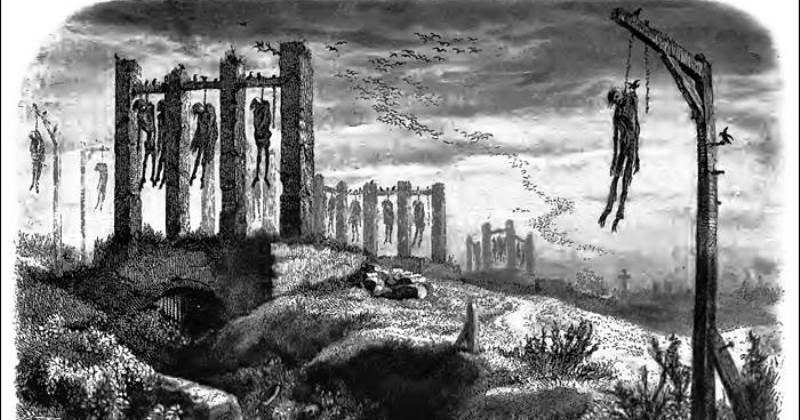
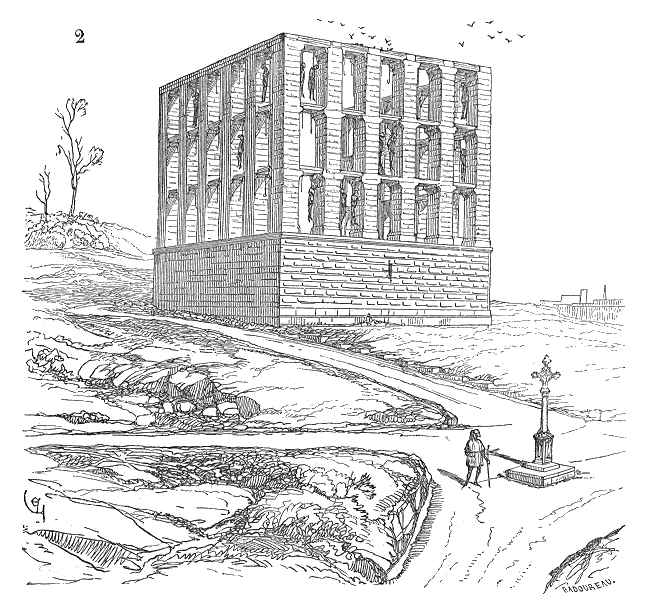


 1
1 



